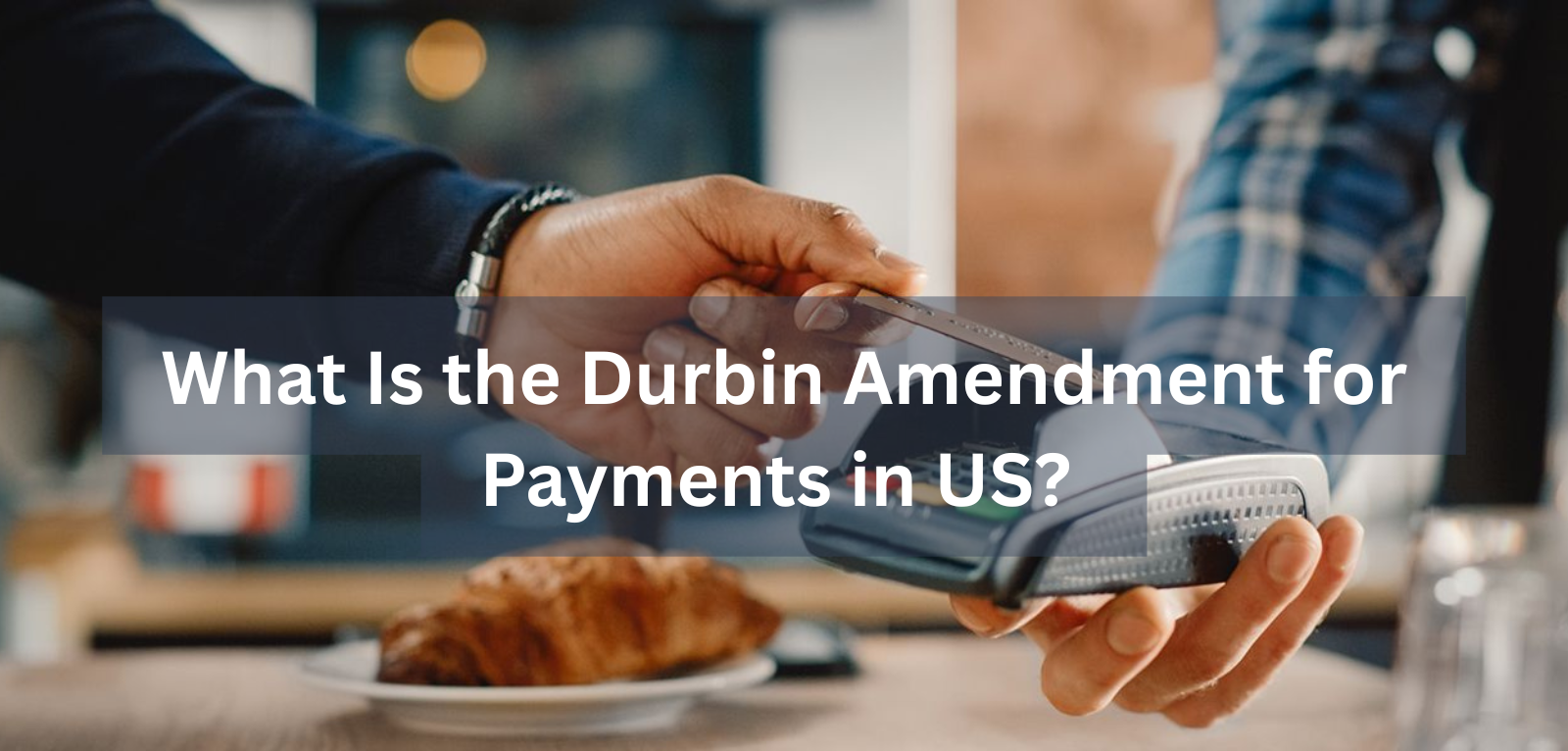Office Hours: Mon – Fri: 8AM – 9PM

What Is the Durbin Amendment — And What Does It Mean for Merchants Like You?
If you own a business and accept debit cards, there’s a law you should know about. It’s called the Durbin Amendment — and it can affect how much money you pay every time someone swipes a card at your store. This law was created to help small businesses like yours by lowering the fees charged by big banks. But what exactly is it, and how does it work? Let’s break it down in simple words.
The Durbin Amendment was proposed by Sen. Richard Durbin (D-IL) as part of the Dodd-Frank Wall Street Reform and Consumer Protection Act of 2010 to place a cap on interchange or transaction fees.
Supporters of the legislation considered the fees excessive as the average fee being charged per debit card transaction was 44 cents. Those in opposition worked hard to defeat the bill, but after much debate, the final rule was handed down and it went into effect on October 1, 2011. Originally a cap of 7 to 12 cents per transaction was proposed. However, the final cap approved was 21 cents plus 0.005% and an additional 1 cent for institutions employing effective fraud preventive initiatives.
The Durbin Amendment was put into place to ensure savings, leaving more money in your pocket. It was specifically written with merchants in mind. As long as you are on a “Cost Plus” program you be able to enjoy the benefits of the Durbin Amendment. At BinglePAY, we only price clients on “Cost Plus.” This way you can be sure you not are not being taken advantage of by your card processor and will benefit from the Durbin Amendment.
Before the Durbin, the average cost per transaction was 44 cents. After the Durbin, the average cap is 24 cents. This is a savings of 20 cents per transaction for all debit cards that qualify.
Why Was the Law Created?
The goal was simple:
Make things fairer for small businesses.
Lawmakers thought the old fees were too high and didn’t reflect the real cost of processing a transaction. Big banks were making huge profits, while small businesses were stuck paying too much just to accept debit cards.
By lowering the fees, the Durbin Amendment was supposed to:
- Help small businesses save money
- Encourage more fair competition
- Possibly lower prices for customers
Who Benefits From the Durbin Amendment?
Small businesses: They pay less in fees when customers use debit cards from big banks. That can mean more money stays in your pocket.
Some consumers: If businesses save money, they might pass the savings to shoppers. (Though not all do.)
Is the Durbin Amendment Still Important?
Yes — and the debate isn’t over. Some lawmakers and banks want to get rid of it. They say it’s hurt banking and hasn’t helped consumers as much as promised. Others believe it still helps small businesses and keeps the fees fair. There have even been talks in Congress about changing or repealing the law. So far, it hasn’t happened — but it’s something merchants like you should keep an eye on.
About BinglePAY
At BinglePAY, we understand how swipe fees can eat into your profits. That’s why we stay ahead of changes like the Durbin Amendment to help merchants get the best possible rates. Our goal is to make payment processing simple, fair, and transparent — especially for small businesses affected by rising banking fees. With BinglePAY, you get reliable debit card processing backed by the latest compliance standards, so you can focus on growing your business while we handle the rest.
BinglePAY will provide a free cost analysis of your current pricing program to help determine if you are receiving the lower Durbin Amendment pricing. Simply fax your statements to 866-422-4009. A relationship manager will provide a proposal of savings and will let you know if you are currently receiving Durbin Amendment pricing.
BinglePAY is an advocate for fair, transparent and ethical credit and debit card processing practices and ensures every client is on a program that allows them to benefit from the Durbin Amendment.
